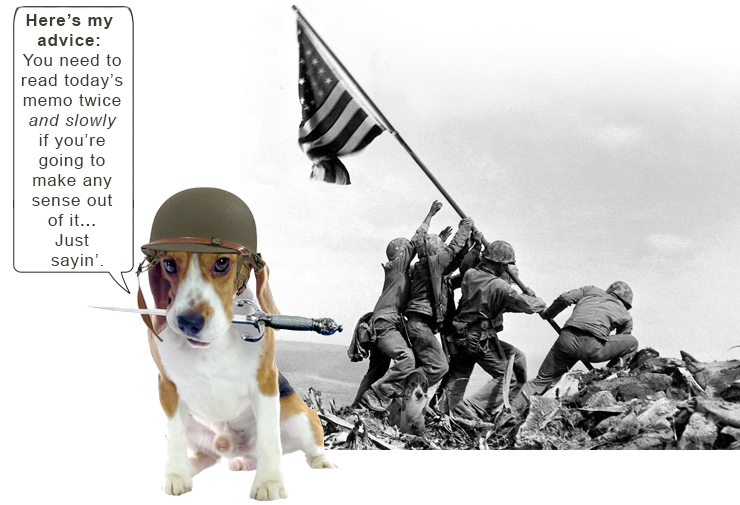 Symbolic thought is commonly expressed through similes, metaphors, and music, allowing us to communicate the unknown and unfamiliar by relating it to the known and familiar.
Symbolic thought is commonly expressed through similes, metaphors, and music, allowing us to communicate the unknown and unfamiliar by relating it to the known and familiar.
Symbols happen when one thing stands for another.
Symbolism plays a role in identity reinforcement. Brands, hobbies, artistic expressions, event attendance, and social connections are symbolic ways of saying, “This is who I am. This is what I do. This is what I stand for. This is what I stand against. This is how I see myself.”
Marketing people call these measurements “psychographics.”
Symbols are powerful, friendly things that assist us in relating to the world around us. They help us make those difficult choices between two good things. “With which of these two things do I most strongly identify?”
Self-determination is a good thing.
Cooperation is a good thing.
Brexit is Britain’s tug-of-war between those two good things.
America is having a tug-of-war of its own.
Understanding how symbols can affect the mood of the heart and the attitude of the mind is a natural part of self-awareness. But symbols get distorted and dark when we embrace them too tightly or carry them one step too far.
Superstition is the belief that a symbol carries within itself the power to enact change.
Pheromones are a series of chemical flags released by animals that signal sexuality, fear, and dominance; moods of the heart and attitudes of the mind.
The flag of a nation is a bit of colored cloth on the end of a stick. Its only power lies in the hearts and minds of those who see it. We are unified when we agree on what that symbol stands for. We are divided when we do not agree.
The only hard choice is the choice between two good things.
When we are deeply divided, we believe our adversaries are stupid and evil. If we are gracious, we call them “uninformed and misled,” which is just a slightly nicer way of saying the same thing.
Reconciliation and unity will not begin until we look beyond our polarized reactions to see the good thing the other side believes in. This is the path to productive civil discourse.
Frankly, I’m a bit weary of destructive discourse, aren’t you?
Regardless of your political beliefs, you have at least one close friend who believes in the good thing that is currently standing in the way of the good thing you believe in. In other words, their political beliefs are not aligned with yours. Is your relationship with that person strong enough, is your trust in that person deep enough, to quietly listen as they explain what they believe and why they believe it? Can you find the good thing your friend believes in?
Ask and it will be given to you; seek and you will find; knock and the door will be opened.
Remember: Your goal is to see through their eyes for a moment. You want to see what they see. This is not the time or place to make them see what you see. If you cannot restrain yourself from correcting them and interjecting your beliefs, you are likely to lose a friend.
The path to peace requires courage, restraint, the willingness to listen, and an open mind.
The other path – the exciting one – is the path that leads to war.
Roy H. Williams
 Fifteen minutes could save you more than just car insurance premiums. In a crisis, it could save your backside. Mary Fran Bontempo, an award-winning speaker, author, and humorist, tells roving Reporter Rotbart, “how to make everything better 15 minutes at a time.” Rotbart decided to test Mary Fran’s premise on Mary Fran, herself, using his stopwatch to give her exactly 15 minutes to explain her method, why it works, and how businesspeople can apply her lessons at work and in their personal lives. You’ll thank us someday for these fifteen minutes. MondayMorningRadio.com
Fifteen minutes could save you more than just car insurance premiums. In a crisis, it could save your backside. Mary Fran Bontempo, an award-winning speaker, author, and humorist, tells roving Reporter Rotbart, “how to make everything better 15 minutes at a time.” Rotbart decided to test Mary Fran’s premise on Mary Fran, herself, using his stopwatch to give her exactly 15 minutes to explain her method, why it works, and how businesspeople can apply her lessons at work and in their personal lives. You’ll thank us someday for these fifteen minutes. MondayMorningRadio.com